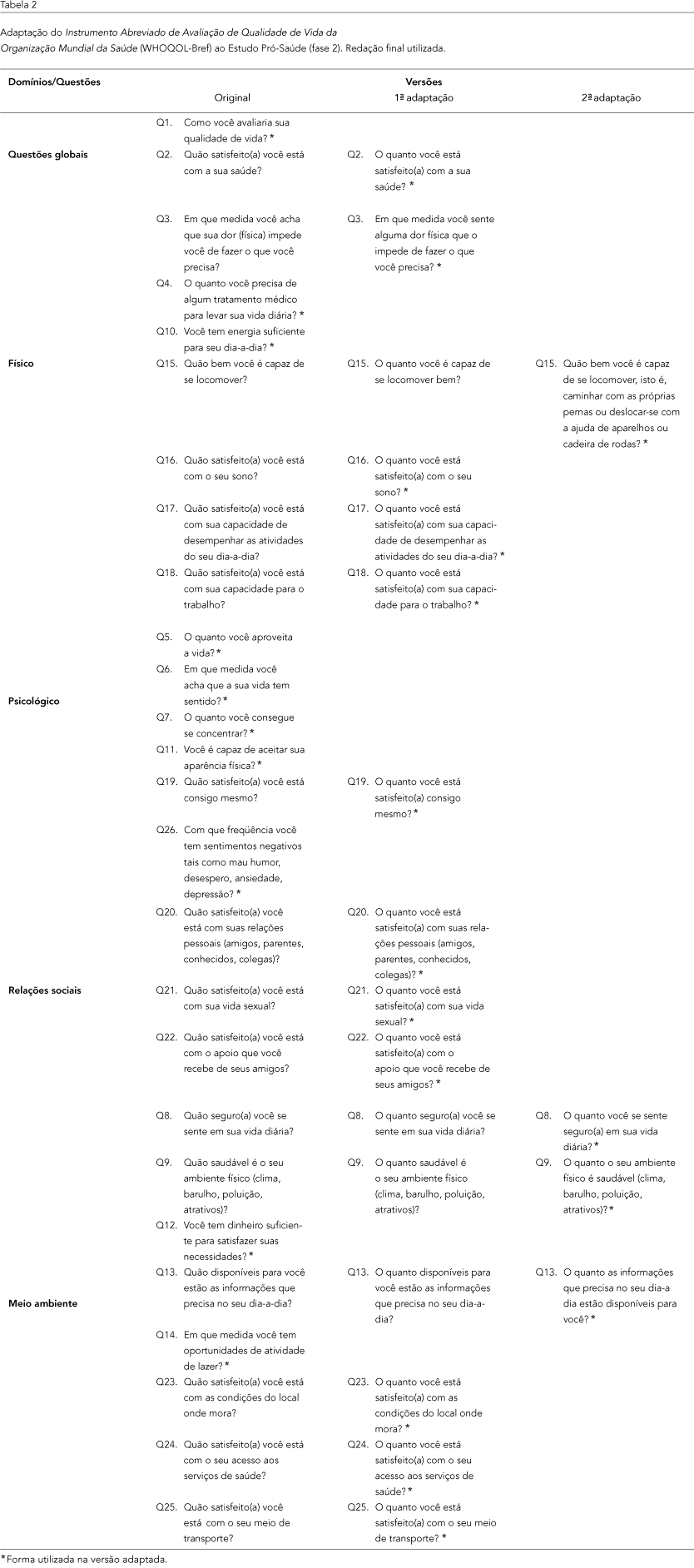This paper reports on the psychometric properties of the World Health Organization Abbreviated Instrument for Quality of Life Assessment (WHOQOL-Bref), comprising 26 items which measure the following broad domains: physical health, psychological health, social relationships, and environment. The instrument was used in the Pró-Saúde Study, a cohort study of public employees at university campuses in Rio de Janeiro, Brazil, during the pilot phase, and by 3,574 subjects in study phase 2 (2001). The estimated test-retest reliability of the responses, measured by intraclass correlation coefficients, ranged from 0.76 to 0.91 across domains. The internal consistency of the items, measured by Cronbach's alpha coefficients, was estimated between 0.69 and 0.79. The factor structure, using iterated principal factor methodology and varimax rotation, did not exactly replicate the structure of the original instrument as assessed during its field tests; among other reasons, the observed discrepancies may be due to the study population's characteristics (active working-age and relatively healthy).
Questionnaires; Quality of Life; Psychometrics





